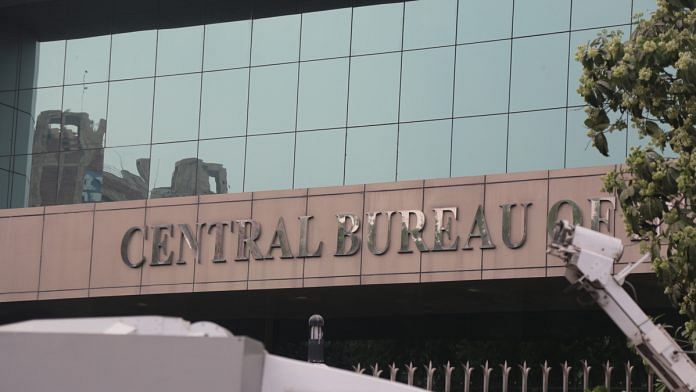New Delhi: Of the two central probe agencies, the Central Bureau of Investigation (CBI) and the Enforcement Directorate, only the former will have to implement the Supreme Court order that disallows the police to attach immovable property of an accused under Section 102 of the Criminal Procedure Code (CrPC), experts tell ThePrint.
The Enforcement Directorate will not be covered under the verdict.
On Tuesday, the Supreme Court ruled that police officers cannot seize immovable property of an accused under the CrPC section of their own volition as such seizure would not “facilitate investigation”.
In the 39-page order, Justice Deepak Gupta and Justice Sanjiv Khanna delivered separate but concurring opinions, laying down the definition of “property” in Section 102 of the CrPC. According to the court, it includes only movable property.
Senior advocate Gopal Sankaranarayanan told ThePrint that CBI will be indeed covered under the verdict as they were “treated as police”.
“The verdict would be applicable to any police officer. CBI personnel are police officers,” said the senior counsel.
The CBI derives its powers from the Delhi Special Police Establishment Act, 1946, and doesn’t have an independent statute governing it, unlike the ED.
The agency, however, does have an alternative remedy in view of the verdict. It can use Section 457 of the CrPC and go to a magistrate seeking proper disposal of the seized property, said Sankaranarayanan.
“It is only after the order of the court, that the property can be attached,” he said.
‘Not in PCA cases’
Former CBI director Ranjit Sinha concurred with Sankaranarayanan, saying the probe agency is governed by the Indian Penal Code and the CrPC, and there is no reason why this verdict won’t apply to it.
Delhi-based advocate M.A. Niyazi agreed. He said the CBI’s role is to investigate and not “adjudicate” and taking possession of an immovable property would mean to “dispossess” someone. This verdict disallowing such an act would, thus, be applicable to CBI.
CBI counsel Tarannum Cheema also said the agency will be governed by this verdict, but added a caveat: it would not be applicable in “cases where Prevention of Corruption Act (PCA) was invoked”.
“When PCA provisions are invoked by the CBI, attachment of properties is governed by the Prevention of Corruption Act and not Section 102 of the CrPC. However, in cases where PCA is not involved, the verdict of the top court will apply to CBI,” said Cheema.
ED is exempt
According to experts, the verdict won’t be applicable to the other central agency that seizes properties while investing a case — the ED.
Sankaranarayanan explained this, saying the ED is governed by two Acts — the Foreign Exchange Management Act (FEMA) and the Prevention of Money Laundering Act (PMLA).
“Under the FEMA, it has been held that they are not police officers. And they have specific powers under PMLA to seize properties, particularly Section 17 of the Act,” said the senior lawyer.
Agreeing with the senior lawyer, a top CBI officer told ThePrint that the ED is allowed to attach and seize properties under the PMLA Act.
“ED is governed by the PMLA Act and would not be under the purview of this verdict. With the Enforcement Directorate, the property is attached to recover the proceeds of the crime and the money laundered. The CBI, however, attaches properties to ensure an absconding accused is produced in court,” said the senior CBI officer who did not wish to be named.
In the ruling, Justice Sanjiv Khanna noted that if the police is conferred with powers to seize immovable properties of an accused under Section 102 of CrPC, there would be only “chaos”.
“If we allow the police officer to ‘seize’ immovable property on a mere ‘suspicion of the commission of any offence’, it means giving extreme power to dispossess…” read the verdict.




Court can also have the power to order Ed is also a police.